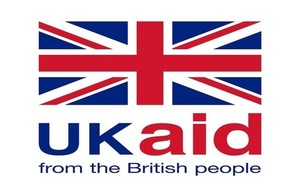UK gives over £25m to help fight Ebola
The UK is taking a leading role in responding to the Ebola Virus Disease (EVD) outbreak in West Africa. Earlier this week, UK Prime Minister David Cameron and UK Department for International Development (DFID) Secretary of State Justine Greening announced that over £25 million of British funding is supporting the global effort to contain this disease. This includes £5 million of new direct funding and around £20 million of UK support through commitments to multilateral institutions and the EU.

UK aid from the British people
The UK’s support will help the governments of Sierra Leone and Liberia to tackle the crisis as well as strengthen the emergency response of UN agencies and other key partners such as Médecins sans Frontières (MSF), the Red Cross and non-governmental organisations working in Sierra Leone.
DFID Head of Office, Paul Wafer, said “it is vital that the UK plays its part in responding to the Ebola outbreak. That’s why I’m delighted that we are taking a leading role, working with the Government of Sierra Leone, other donors, and partners on the ground to coordinate a more effective response to the crisis. The UK recognises that the best way to prevent the further spread of the outbreak is to support better management of the response in those countries currently worst affected – particularly Sierra Leone.”
UK funds will help fill critical gaps in the front-line response by providing technical staff, emergency supplies and equipment, and training in specialist care. The UK is also supporting improved communication on the outbreak in country, including through radio messaging and public announcements, so communities better understand the disease and can take steps to prevent its spread.
The UK is also using its position as a global centre of research to better understand Ebola and help prevent a future outbreak. Alongside the Wellcome Trust and Medical Research Council, the UK has also provided a £2.8 million grant to help accelerate clinical trials to develop a vaccine which could be pivotal to preventing future outbreaks. If the trials are successful, stocks could be made available immediately to the World Health Organization (WHO) to create an emergency immunisation programme for high risk communities.